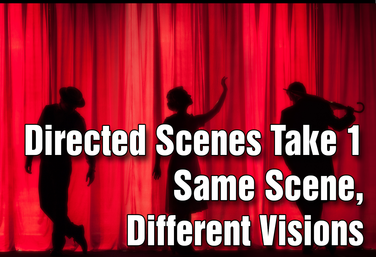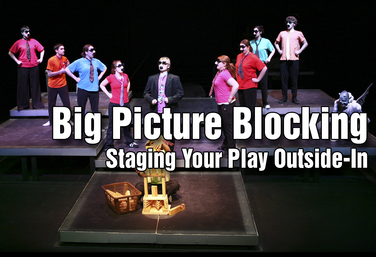View all Standards for Alberta, Canada
7 demonstrate understanding of the compositional methods of emphasis: body position, stage area plane, level, contrast, space, repetition

UNIT
Part of the Middle School Curriculum
Unit Six: Directed Scenes Take 1: Same Scene, Different Visions
by Lindsay Johnson
Students will now start applying the skills they’ve learned thus far in the context of existing, fleshed-out scripts.
They will also have opportunities to shift from actor to director and hone such skills as collaboration, self-confidence, and problem-solving which can be used in many other areas of their lives.
Read More
about Unit Six: Directed Scenes Take 1: Same Scene, Different Visions
Read Less
about Unit Six: Directed Scenes Take 1: Same Scene, Different Visions

UNIT
Scene Staging
by Lindsay Price
The goal for this unit is to give students a process to work primarily on their own to create a staged scene with specific, dynamic blocking and three-dimensional characters. This unit would work well as a culminating project for a semester. In this unit, students will work independently to analyze, block, build character, experiment, and rehearse a scene. Their performance can count as a summative assessment for the class.
Material: This unit requires that students have access to scenes from plays. Ideally, students should work in pairs and prepare duet scenes.
Read More
about Scene Staging
Read Less
about Scene Staging

PD COURSE
Big Picture Blocking: Staging Your Play Outside-In
by Todd Espeland
Working in educational theatre I know how easy it is to get bogged down in actor coaching and away from the bigger picture storytelling when directing a show. I saw a need for a method of text analysis and physical staging tools that help the director stay focused on the bigger picture of telling the story of the play.
This class is in two parts: The first consists of the text analysis tools P.A.S.T.O and Major Dramatic Question. From these tools you will brainstorm keywords to define your vision of the story.
In the second part of the class you will focus on taking the information generated in the text analysis and crafting the ideas into vibrant physical pictures through an exercise called Starburst.
Read More
about Big Picture Blocking: Staging Your Play Outside-In
Read Less
about Big Picture Blocking: Staging Your Play Outside-In

PD COURSE
Director's Toolbox 2: Teaching Students to Direct
by James Van Leishout
Director’s Toolbox 2: Teaching Students to Direct, explores the tools of the actor, rehearsal, space, and design.
The tool of the actor will focus on creating a safe place to play, auditions, and how to communicate with actors.
Rehearsals will look at the whole process from the first meeting to opening night.
The tool of space will explore how to direct in different spaces and how to create focus through stage composition.
Discover how an understanding of the elements of design help student-directors communicate with designers. The final step is a return to self and the mastery of self evaluation.
Read More
about Director's Toolbox 2: Teaching Students to Direct
Read Less
about Director's Toolbox 2: Teaching Students to Direct
View all Standards for Alberta, Canada Standards Master List